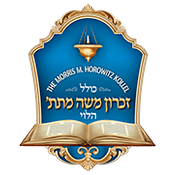Parshas Emor 1


׳׳וקראתם בעצם היום הזה מקרא קדש יה׳ לכם כל מלאכת עבדה לא תעשו חוקת עולם בכל מושבתיכם לדרתיכם׳׳
׳׳ובקצרכם את קציר ארצכם לא תכלה פאת שדך בקצרך ולקט קצירך לא תלקט לעני ולגר תעזב אתם אני ד׳ אלוקיכם׳׳
ויקרא כג,כא-כב
“You shall call on this exact day, a holy calling it shall be to you, all labor you shall not perform, an everlasting law in all of your cities for all your generations.” “When you shall reap the harvest of your land, you shall not completely gather the corners of your field as you reap and the fallen straw from your harvest you shall not collect, for the poor and the
proselyte you shall leave them, for I am Hashem your G-d.” Vayikra 23:21-22
Rashi brings down a beautiful explanation as to why the mitzvos of פאה (leaving over the stalks of grain in the corner of ones field for the needy to harvest) and לקט (leaving behind fallen stalks of grain for the poor to collect) are sandwiched between the mention of the holidays; Pesach and Shavuos are mentioned beforehand in the pasuk, whereas Rosh Hashana, Yom Kippur and Sukkos are taught afterwards. This is to teach us that if we leave over שכחה ,לקט and פאה for the needy as is dictated by the Torah, it will be considered as if we have built the Beis Hamikdash and sacrificed the (holiday) offerings inside it.
The משך חכמה explains the specific proximity of the pasuk that delineates the aforementioned mitzvos of supporting the needy to the pasuk that describes the commandment of the upcoming Chag of Shavuos. He writes that while it is incumbent upon us to celebrate the holiday of Shavuos which is the Chag of Kabalas HaTorah (our acceptance of the Torah), we must celebrate not only our acceptance of the laws of the Torah which we would not have thought of or necessarily understood on our own. We must celebrate as well our acceptance of the logical mitzvos, the ones that make sense to us, such as giving charity to the needy and having mercy on those less fortunate than ourselves. For these mitzvos as well, we must praise and thank Hashem for commanding and teaching us about in His Torah Hakedosha.
We may not fool ourselves to say that even without the Torah we would still fulfill the “sensical” commandments. For as we must by now know, that without belief in Hashem, humanity would be transformed into no less than a stampede of wild boars, without a shred of mercy. We would perform the most abominable and lowly acts under the guise of patriotism or for personal gain. Only because the pasuk states ׳׳אני ד׳ אלוקיכם׳׳ do we perform these mitzvos of giving to the needy and the convert, ׳׳לאני ולגר׳׳ . Therefore we must celebrate מתן תורה on Shavuos and thank Hashem even for the mitzvos of ׳׳ובקצרכם׳׳ – the logical mitzvos, for if not for our acceptance of the Torah, humanity would not adhere to even these basic moral codes.
The point that the משך חכמה is bringing out is most astute. Everything we have comes from Hashem and his Torah. We must understand that without the Torah, we would posses no logic. Even the most basic moral standards would be lost on us. There is no sense to be had that does not stem from the Torah; it is our lifeblood, our backbone, the source of our competence and confidence. We are now counting the Omer; we are more than halfway there. Let’s prepare ourselves for Shavous and be ready to greet this holy day when it arrives, with pure joy and gratitude to Hashem for entrusting us with His most precious gift, the תורה הקדושה.
Moshe Rothenberg / MMHK
